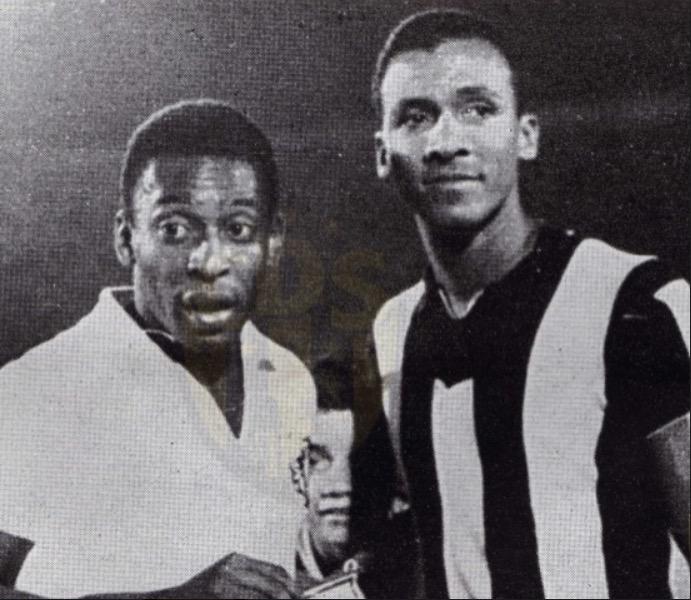
1 minute read
THE UNTOLD GAME
Martyn Green
7-1 demolition of Bolivian champions Jorge Wilstermann, the Ecuadorian netting four times, the first four of an unbroken record of 54 goals over the next decade. With the competition in its infancy, Peñarol advanced immediately to the semi-finals, where they met Argentinian champions San Lorenzo. After a draw in the first leg. Spencer dominated the second leg, scoring twice to fire his side into the final, where they met Paraguayan’s Olimpia. Again, he scored the match-winning goal, and Peñarol were continental champions. A heavy defeat to Real Madrid in the continental cup didn’t sour the achievement, although revenge was vowed.
Advertisement
Peñarol won the league and retained the Copa the following year. Real Madrid had lost their European, meaning the Uruguayans would first travel to Lisbon to take on Eusebio-inspired Benfica.
A 1-0 first leg defeat was of little concern, and when the Portuguese turned up in Montevideo it was to a cacophony of noise. The European champions fell to a 5-0 defeat, Spencer scoring twice. But with the rules of the intercontinental cup not quite set (and, presumably, Europe unwilling to lose its dominance), the tie was balanced at one victory each. A deciding playoff was hastily arranged. Peñarol came out on top, and with no excuses this time, they were champions of the world.
Spencer’s record in the intercontinental cup - he would score three goals in 1966 as Peñarol secured a third Copa and then extracted revenge from Real Madrid - makes him the second highest goalscorer in that competition as well, one goal behind Pelè. The Urugayan’s would win their own league eight times in the ten seasons that Spencer led their line, as he amassed 326 goals to become their (still) record goalscorer. Peñarol were named the best South American team of the twentieth century, to put that achievement into context.
By 1970, with his pace beginning to desert him and his body beginning to slow down, Spencer










